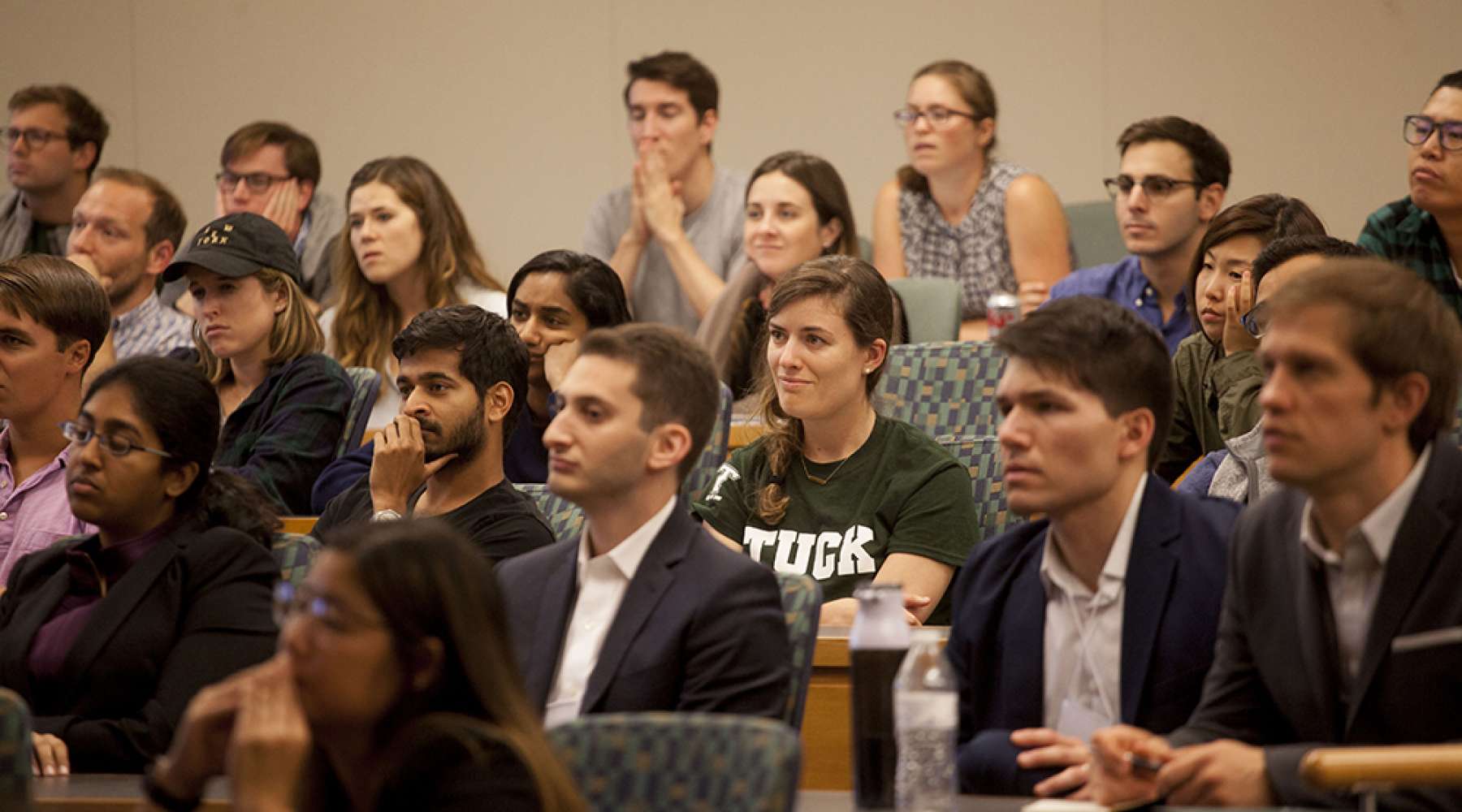
I came to business school hoping to learn new things, meet great people, and gain insight into different industries but never would I have guessed how quickly Tuck would allow me to achieve these goals!
Tuck takes pride in its rigorous academic curriculum. This experience equips students with the analytical capabilities required to be wise leaders, able to judge when and how to take risks. The first half of the Fall semester, Fall A, includes classes in managerial economics, statistics for managers, analysis for general managers, and leading individuals and teams–and in only four weeks, from the first class to finals.
The inclusion of “manager” in these course titles isn’t ornamental; the courses cover the theory I spent semesters learning in my undergraduate economics degree in a matter of weeks, prioritizing the application of theory to real business problems. These included making a go-no-go decision for a smelter project in the face of political upheaval, helping a software company segment its customers to maximize profit, and advising a new CEO on how she should spend her first 24 hours in a company riddled with pressing problems.
The work was challenging but hugely rewarding and the best aspects were the classmates I had the opportunity to work with. At the end of orientation, Tuck strategically assembled us into “study groups” of five or six students. My study group of five represented three nationalities, work experience in six countries, and diverse industry backgrounds from nonprofits, wealth management, pharmaceuticals, and data science. We worked together very closely, helping each other prepare for cases, complete group assignments, and manage the busyness of business school life. We became each other’s career coaches, professors, and cheerleaders. We formed, stormed, normed, and performed, learning to leverage our respective strengths, acknowledge our weaknesses, and openly give each other feedback on our group performance.
What we learn in classes doesn’t stay in the classroom. Toward the end of Fall A, I attended a recruiting reception hosted by a large technology startup. As I listened to the firm’s history and strategy moving forward, I found myself applying the toolkit I learned in my classes to analyze and evaluate what was being presented. I clearly wasn’t alone in my thinking because immediately after the presentation I was part of a discussion with classmates assessing the way the firm had used price discrimination practices to move up the price-volume market pyramid, segmenting the firm’s value chain, and evaluating whether its newest technological investments represented an expansion of core competencies. It was satisfying to see how your business training had given us a context to debate and discuss these issues.
Coming to an Ivy League college, I had very high expectations for the coursework and teaching, and both have exceeded those expectations. As I continue through the core curriculum, I am confident that I will build a breadth of business concepts, vernacular, and frameworks that will allow me to take better advantage of deeper discussions in elective courses and, ultimately, set me up well for my career post-Tuck.
 Sam Humbert is a T’19 who came to Tuck from Australia via Hong Kong, which is the birthplace of his 2-year-old daughter and where he spent four years working in financial services.
Sam Humbert is a T’19 who came to Tuck from Australia via Hong Kong, which is the birthplace of his 2-year-old daughter and where he spent four years working in financial services.